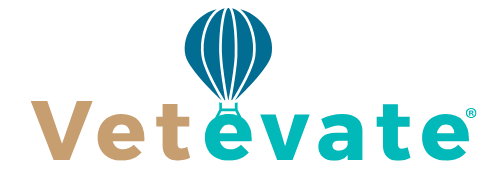Veterinary medicine is a profession rooted in precision, compassion, and specialized knowledge. It’s also a field where the right match between employer and employee can make a profound difference—not just for the clinic or hospital involved, but for the well-being of animals and the satisfaction of clients. This is why both employers and job seekers increasingly turn to veterinary job boards as a primary resource in their search for talent and career opportunities. These industry-specific platforms have become essential tools for connecting veterinary professionals with the roles that suit their skills, values, and goals.
Employers in the veterinary space need more than just a qualified candidate; they need someone who understands the demands of the profession, can contribute to a positive team dynamic, and shares their approach to animal care. Likewise, veterinarians, technicians, and support staff are not just looking for a job—they’re looking for the right work environment, mentorship opportunities, professional growth, and a sense of purpose. Veterinary job boards are built to support these nuanced needs, allowing both sides to engage in a search that is more targeted, transparent, and ultimately more successful than what generic job platforms can offer.
The key advantage of these job boards is their ability to create meaningful matches. When everyone using the platform is part of the same profession, the listings and applications become more relevant, and the process is significantly more efficient. There is less noise, fewer irrelevant postings, and more opportunities to make real connections that lead to long-term employment success. Whether a clinic is looking for a new associate or a recent graduate is searching for their first role, veterinary job boards provide the structure and community needed to bring the right people together.
Why Employers Choose Veterinary Job Boards
Veterinary employers—from small animal practices and large corporate networks to academic institutions and nonprofits—face a number of challenges when it comes to hiring. The veterinary workforce is highly specialized, and open positions often require a very specific set of skills, certifications, and experience. General job boards might offer a wide reach, but they lack the filtering tools and audience targeting that veterinary employers need. That’s why employers are increasingly relying on veterinary job boards to ensure that their job listings are seen by qualified professionals actively working or trained in animal health.
By using a veterinary job board, employers are able to post detailed listings that speak directly to a veterinary audience. These listings often include specifics about species focus, required credentials, hours, case load, equipment used, and the culture of the clinic or hospital. Employers also benefit from features such as resume searches, candidate messaging tools, and profile insights that help them learn more about applicants before reaching out. The tailored nature of these tools ensures that they are spending time reviewing serious candidates who are genuinely interested in working in veterinary medicine.
Another reason employers choose veterinary job boards is because they can highlight the unique aspects of their workplace. Unlike generic postings that often feel flat and impersonal, veterinary job boards allow employers to showcase photos, videos, staff testimonials, and benefits. This helps convey their practice culture and gives potential applicants a much better sense of what working there would be like. For high-quality candidates who have options, these additional details can make the difference between applying and scrolling past.
Speed and efficiency are also major benefits. Veterinary job boards allow employers to fill roles more quickly by connecting with job seekers who are already looking within the industry. This shortens the recruitment cycle and reduces the costs associated with long-term vacancies or multiple rounds of unqualified candidates. For employers, particularly in understaffed practices, this level of efficiency is more than just helpful—it’s essential to maintaining the quality of care and keeping operations running smoothly.
How Job Seekers Benefit from Veterinary Job Boards
Veterinary professionals face a number of challenges when it comes to finding the right job. It’s not just about finding any open position—it’s about finding a job that aligns with their experience, interests, lifestyle, and professional goals. Job seekers in this field may be looking for mentorship, a chance to work with a particular species, better work-life balance, or a move into a specialty like surgery or emergency care. Veterinary job boards help them cut through the clutter of irrelevant listings and zero in on the opportunities that truly match what they’re looking for.
One of the main benefits for job seekers is the specificity and relevance of the listings. On a veterinary job board, every role posted is tied to animal health, and filters can be applied to search by job type, location, species, or employer type. This allows job seekers to focus their energy on the most promising opportunities, rather than wasting time scrolling through unrelated or vague postings. Many platforms also include tools like salary transparency, practice profiles, and links to employer websites or social media, which help job seekers get a well-rounded view of what to expect before applying.
In addition, many veterinary job boards are designed to be user-friendly and accessible. Job seekers can usually upload their resume, create a profile, and start applying within minutes. The ability to set up job alerts also ensures that new listings matching their criteria are sent directly to their inbox, helping them stay ahead of the competition. In a job market where timing can be everything, these features offer a real advantage.
For new graduates or those returning to the workforce, veterinary job boards often provide helpful career resources, including resume tips, interview advice, and continuing education options. Some boards even feature mentorship programs or connect candidates with industry professionals for networking opportunities. These added services go a long way in helping job seekers feel supported, confident, and prepared for the next step in their veterinary careers.
Building a Stronger Veterinary Community
At their core, veterinary job boards do more than connect employers with job seekers—they help strengthen the profession by facilitating better matches, improving retention, and encouraging transparency. When employers find the right people for their teams and professionals find jobs that support their growth and well-being, everyone benefits. Animals receive better care, practices operate more smoothly, and the profession as a whole becomes more sustainable and rewarding.
These platforms also contribute to the overall health of the veterinary job market by providing data and insights into hiring trends, salary ranges, and workforce needs. Employers and job seekers alike can use this information to make informed decisions, negotiate more effectively, and plan their career paths with greater clarity. Veterinary job boards often act as industry hubs, not just for employment but for news, learning, and collaboration.
As the veterinary profession continues to evolve, job boards will play an even more critical role in helping professionals adapt to changes. From the growing demand for telehealth services to shifting client expectations and the expansion of corporate practice groups, the industry is changing rapidly. Job boards provide a centralized place for everyone to stay connected and up to date. For employers looking to stay competitive and for job seekers seeking meaningful work, these platforms are no longer optional—they’re essential.
By offering transparency, access, and efficiency, veterinary job boards meet the needs of a field where every hire matters and every role has the potential to impact countless lives. Employers and job seekers alike benefit from the clarity and community these platforms offer, making them a cornerstone of modern veterinary career advancement.




